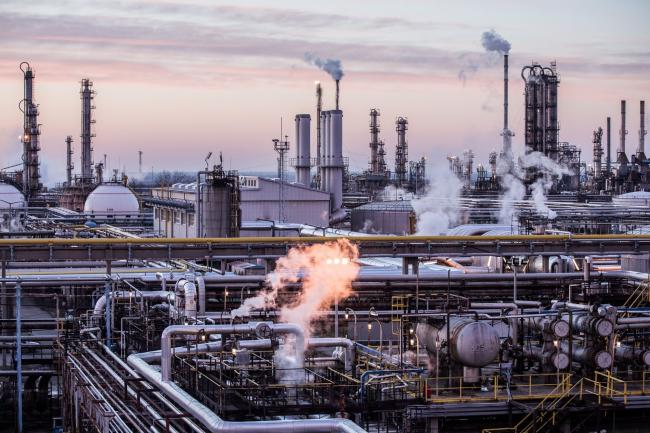(Bloomberg) -- Oil edged lower as investors weighed troubling economic data from around the world against the OPEC’s pact to extend output curbs.
U.S. futures slipped by about 0.8 percent in early Asian trading, continuing a retreat that began during the previous day’s session in New York. While OPEC ministers confirmed an agreement to maintain existing production curbs for nine months a slew of disappointing manufacturing reports from the U.S., China and Europe undermined faith in oil demand and a stronger dollar also diminished the appeal of holding commodities.
After more than 10 hours of meetings in Vienna, OPEC ministers confirmed their agreement to extend existing production curbs for nine months. The decision, which needs to be ratified by non-OPEC allies on Tuesday, comes as the International Energy Agency and other market watchers peg back forecasts for demand amid sluggish growth in China and India. At the same time, American shale production has set fresh records, putting the U.S. on the brink of becoming a net oil exporter.
Adding to bearish sentiment, the U.S. added new products from the European Union to potentially target with retaliatory tariffs, diminishing economic optimism stemming from the trade truce between Washington and Beijing. The U.S. dollar also jumped by the most in more than 2 months on Monday, diminishing the appeal of greenback-denominated commodities such as oil.
West Texas Intermediate crude for August delivery fell 45 cents to $58.64 a barrel at 8:30 a.m. Singapore time on the New York Mercantile Exchange. While it closed 1.1% higher on Monday, it’s been in retreat since touching intraday highs of more than $60.
Brent for September settlement dropped 37 cents to $64.69 on the ICE (NYSE:ICE) Futures Europe Exchange. The contract added 0.5% yesterday.
Oil rose by the most since January last month after escalating tensions in the Middle East spurred concerns over supply. Worries increased as Iran began to renege on its commitments to a nuclear deal, following the imposition of tighter U.S. sanctions. Yet the Persian Gulf nation is backing the OPEC+ extension, removing a major hurdle for Saudi Arabia and Russia. Russian President Vladimir Putin and Saudi Crown Prince Mohammed Bin Salman agreed to prolong the curbs over the weekend.
